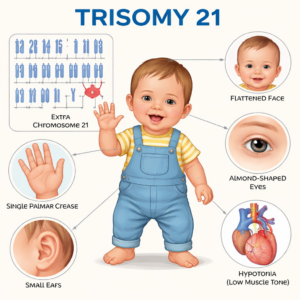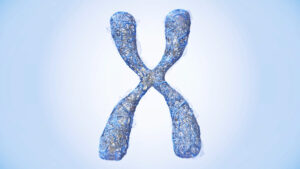My child was diagnosed with a genetic condition. Am I to blame?
For many parents, guilt is a constant emotion as we raise our children. Are we making sure they eat healthy enough? Are we monitoring their screen time enough? Are they happy, do they have enough friends? Am I providing the right environment for them? But for parents of a child diagnosed with a genetic condition, the intensity of the guilt, that maybe somehow I am to blame for their child’s condition, can be almost too much to bear.
Understanding more about genetic disorders in children
A child inherits 50% of their genes from their mother and 50% from their father. Mutations in genes or chromosomes from either parent can be passed onto a child and may trigger a genetic condition or disorder.
Not every child diagnosed with a genetic condition received it as an inherited condition. Many genetic diseases result from a de novo, or new mutation of a gene at the time of reproduction. These include rare conditions such as Kabuki syndrome, CHARGE syndrome, and KBG syndrome, to name a few. Over this, parents have zero control.
Even when genetic conditions are inherited, most parents are unaware that they are carriers of a mutated or altered gene and, most of the time, would have no reason to suspect that they are.

How are genetic disorders inherited?
Genetic disorders in children inherited in an autosomal recessive pattern require the child to inherit a damaged gene from both parents. Still, as carriers with just one mutated gene, the parents display no symptoms. Even when both parents are carriers, the chances of a child inheriting both faulty copies of the gene are 25% and not definite each time. This means they may have several children, without any health issues or problems, before having a child that presents with a genetic condition. Without any symptoms, it is almost impossible for parents to know that they are carriers of a specific mutated gene without undergoing intensive genetic screening themselves pre-pregnancy. Usually, the diagnosis of their child is the first awareness they may have that they are carriers.
The field of genetic research and testing has come a long way in recent years. However, there is still much to be learned about the human genome and how genetic disorders in children develop and occur. What we do know is that there is very little parents can do to control if their child develops a genetic condition.
However, if you know that you, as a potential parent or someone else in your family, are carriers for a specific genetic condition or at risk for a specific genetic condition because of a family history of a specific disease, it is crucial to begin the genetic counseling process. It is also important to consider the options for screening you and your partner before planning a pregnancy and ensuring that you utilize all of the prenatal genetic screening tests available.
Once you are working with a genetic counselor, they can help you map out your family medical history, advise which tests are necessary, and work you through both the testing process and the potential implications based on possible test results and eventual diagnosis. Make sure you have all the information crucial to planning a healthy pregnancy and birth.
What can I do to help my child?
As parents, there is a lot that is out of our control when it comes to our children’s health. Genetics is just one complex part of that. Parents must understand that genetic counseling and genetic testing exist to help them make the right decision for their child’s health while accepting there is only so much we can control and prepare for. The field of genetics is complex, and new research is shedding more light on it, as we still understand the causes of many genetic conditions.
As a parent, you are not to blame for your child’s genetic condition. Ensuring you receive the right genetic counseling to support you and your family through the diagnosis is crucial. Connect with one of our highly recommended genetic counselors to start your genetic analysis today.



